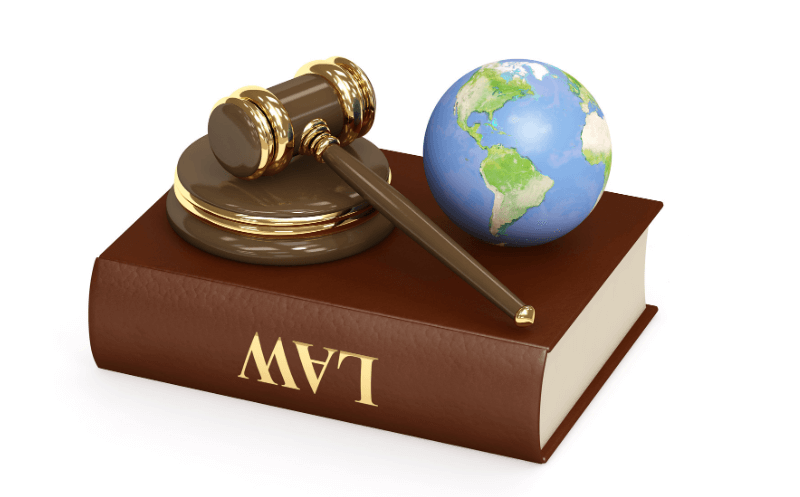Gambling Licensors
A company that offers gambling services needs a license to legally offer its services. The type of license the company needs depends on the business model of the company. A Norwegian bingo hall and a sportsbook online cannot use the same license as there are vastly different business models with different target groups. Here we will look at different licenses.

License to operate on the Internet
Such a license grants the licensee the rights to conduct an online gambling business. The operator is obliged to comply with all requirements of the licensor; such as age limits, responsible gaming, player protection and data security.
Malta - Malta Gaming Authority (MGA)

Malta is the most well-known country when it comes to gambling companies. The small island state, which is also a tax haven, is located just south of Sicily. The country is a full member of the EU and thus all gaming companies licensed from Malta can offer their services throughout the EU, except countries that have specific regulations.
Malta is a hub for gambling and much of the country's GDP comes from this industry. It is approx. 400,000 inhabitants in the country and approx. 10,000 of these are Scandinavians working in the gaming industry.
The licensing authority Malta Gaming Authority places strict requirements on the licensees, which means that an MGA license is highly regarded.
Malta offers a variety of licenses in both B2C and B2B.
United Kingdom - UK Gambling Commission (UKGC)

UKGC is by far the most stringent licensor in the world. In order to offer gambling services in the regulated UK market, companies must hold a UKGC license. In contrast, Great Britain is one of the largest gambling markets in the world, and a license from the UKGC also gives the operator the right to operate on the Internet throughout the EU, at least before Brexit.
There are a lot of restrictions on how companies can market themselves in the UK, as well as rules on how the company should maintain sound gaming policies.
British Channel Islands - Alderney Gambling Control Commission (AGCC)

Alderney is one of the eight Channel Islands between the United Kingdom and France, just off the coast of Normandy. The archipelago is divided into two states subject to the British monarch: Bailiwick of Jersey and Bailiwick of Guernsey. Alderney is part of the Bailiwick of Guernsey. States are neither in the EU nor in the Commonwealth of Nations, and both states are self-governing.
Alderney Gambling Control Commission was established in the year 2000, with UKGC approval. The Commission can issue both Category 1 license, which is for B2C, and Category 2 license, which is for B2B.
AGCC is a serious licensor that requires the company's funds and players' funds to be kept in separate bank accounts. If a dispute arises between a customer and an operator, it is AGCC that mediates the case.
There have been a number of scandals in online gambling over the past 20 years, but no scandal was bigger than AGCC-licensed Full Tilt Poker's alleged ponzi scam. Full Tilt Poker broke the license requirements by not separating the company's funds and the players' funds. The company then spent the players' funds on operating expenses, salaries and bonuses to management. In the wake of the scandal, it was revealed that the AGCC had done a surprisingly good job of uncovering the scams and bringing those responsible to justice.
Curacao - Curacao Egaming License Authority

Curacao was formerly called the Netherlands Antilles, but is now an independent country. Curacao introduced a licensing system for online gambling in 1996, at the same time as Belize. Unlike Belize, Curacao has succeeded in its efforts. The reason was simply that Curacao did a better job. The first consultation on a licensing system took place as early as 1993 and it took three years before the licensing system came into force.
As of 2018, Curacao is the world's largest licensor , measured in terms of the number of licenses issued. The reason for popularity is that the entry threshold for startup companies is low. There are less requirements and rules to deal with in relation to Malta and the United Kingdom, and there are financial incentives to use the gaming license from Curacao.
The corporation tax on gaming companies in Curacao is 0% on revenue and only 2% on profit. This tax system is guaranteed until 2026. In addition, it only costs $ 36,000 to obtain a license.
Gibraltar - Gambling Division of the Government of Gibraltar

The corporation tax on gaming companies in Curacao is 0% on revenue and only 2% on profit. This tax system is guaranteed until 2026. In addition, it only costs $ 36,000 to obtain a license.
The gambling industry is the largest employer in Gibraltar.
The big advantage of Gibraltar's license is that it is a full member of the EU, at least until Brexit. What happens after Brexit is uncertain.
Gibraltar offers seven different licenses and sets tough requirements for applicants. Only operators with a good history in the gaming industry and a sound business plan are being evaluated. The auditor is required and both data security and player security are the focus.
The companies licensed in Gibraltar have also set up their own body , of which all the major UK players are members.